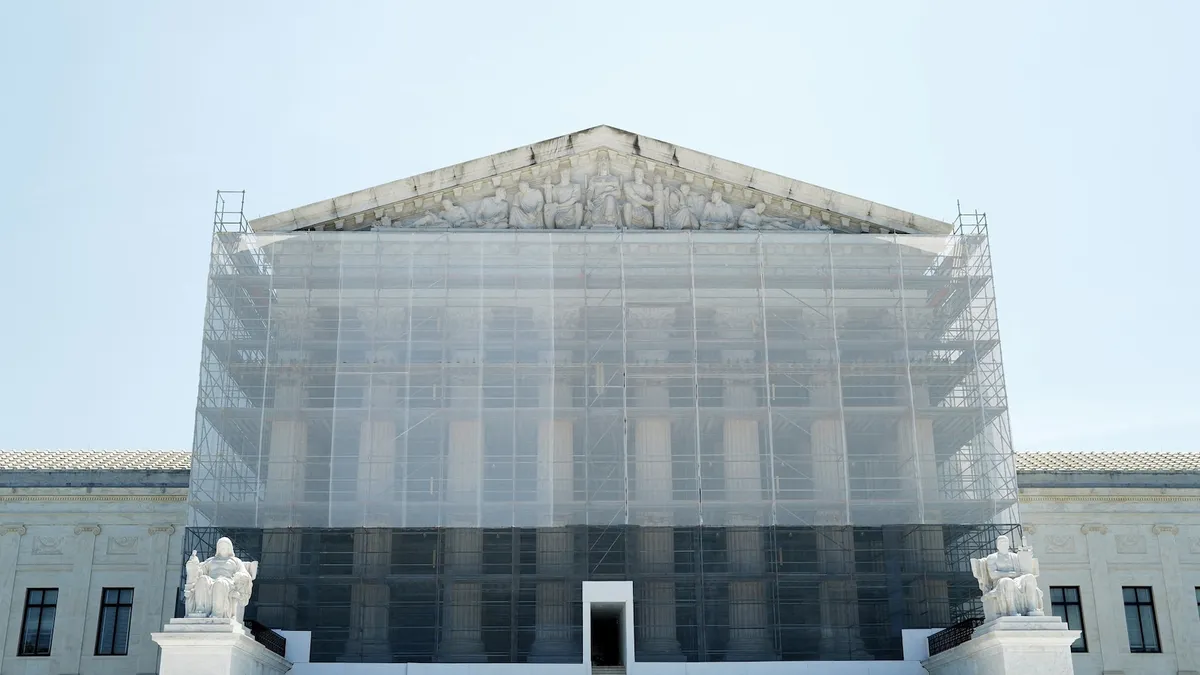
President Donald Trump has experienced a remarkable series of victories at the U.S. Supreme Court, securing over a dozen interim rulings that bolster his assertive use of executive power. Notably, a landmark decision has limited the capacity of individual judges to obstruct his policies on a national scale. As the Supreme Court prepares to reconvene on Monday for a new term, the pressing question remains: will this winning streak continue?
The nine justices will tackle significant disputes regarding the extent of presidential power this term, which could have profound effects on Trump’s administration, the global economy, American foreign policy, and the upcoming midterm elections. Jeffrey Rosen, president and CEO of the National Constitution Center, emphasizes, "This term will reveal whether there are limits to the court's expansive interpretation of the unitary executive power." If the court curtails Trump's ability to use executive orders to terminate birthright citizenship or impose tariffs, it may signal a shift in judicial alignment away from the president's favor.
One of the most consequential cases this term involves Trump’s extensive global reciprocal tariffs, which are under scrutiny for potentially being an illegal application of emergency authority bestowed by Congress. Legal experts like Hofstra Law professor and ABC News contributor James Sample assert that this case holds significant economic implications. "If you consider a tariff as a tax, this represents one of the largest tax increases in American history that bypassed Congress entirely," he noted.
Additionally, the court will assess the legality of Trump’s dismissals of Democratic officials from independent federal agencies, a move that contradicts nearly a century of legal precedent. The question of whether future presidents can manipulate the Federal Reserve to their advantage poses a monumental challenge, according to Sample.
Another critical issue under review is Trump’s executive order aimed at terminating birthright citizenship, challenging over a century of established legal precedent defined by the 14th Amendment. Rosen suggests that the court is likely to impose constraints on Trump in this area, indicating a potential shift in judicial philosophy.
While many of the judicial victories for Trump have been temporary decisions allowing his policies to advance during ongoing lower court proceedings, SCOTUSblog editor Sarah Isgur points out that the conservative majority has provided the president with significant leeway. However, the court has also mandated due process for detainees and affirmed the independence of the Federal Reserve, indicating a nuanced approach to Trump’s policy initiatives.
Legal analysts speculate that the court’s conservative majority may be motivated to counter the prevailing public perception that it disproportionately favors Trump. According to a Pew Research Center survey, 71% of Republicans view the court favorably, in contrast to only 26% of Democrats. Jennifer Nou, a University of Chicago Law professor, predicts that the court may adopt a more balanced approach to Trump administration cases to enhance its institutional reputation.
Beyond matters of presidential power, the Supreme Court will also address pivotal cases related to the Voting Rights Act, free speech, mental health care, and the participation of transgender athletes in school sports. A notable case from Louisiana challenges the state's majority-black congressional districts ahead of the midterm elections, with potential ramifications for minority voting rights under Section 2 of the Voting Rights Act.
Furthermore, a Colorado therapist is contesting a state ban on "conversion therapy," asserting that it infringes upon her freedom of speech. With 27 states enforcing similar prohibitions to protect LGBTQ teens, the outcome of this case could have significant societal implications.
Two cases from West Virginia and Idaho will examine state restrictions on transgender girls competing in girls' sports. The plaintiffs argue that these laws violate Title IX of the Civil Rights Act and the 14th Amendment's equal protection clause, while states defend them as necessary for fair competition and student safety.
The Supreme Court will commence its new term on Monday at 10 a.m., marking Chief Justice John Roberts' 20th anniversary on the bench. Nominated by President George W. Bush in 2005, Roberts’ tenure has been characterized by the conservative majority's overruling of longstanding precedents. Legal experts like Jonathan Adler from William & Mary Law School note that while the current court is overturning precedents at a lower rate than previous courts, the implications of these decisions are profound.
As the court prepares to deliberate on these pivotal cases, the legal landscape in America is poised for potentially transformative changes, shaping the future of presidential power, civil rights, and societal norms.